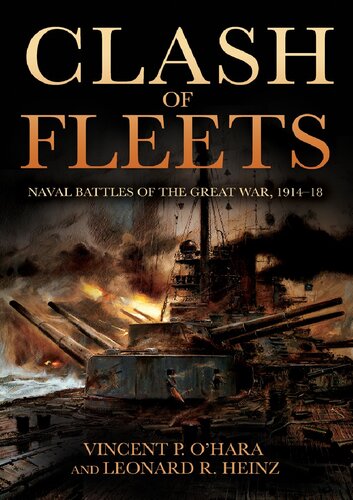

Most ebook files are in PDF format, so you can easily read them using various software such as Foxit Reader or directly on the Google Chrome browser.
Some ebook files are released by publishers in other formats such as .awz, .mobi, .epub, .fb2, etc. You may need to install specific software to read these formats on mobile/PC, such as Calibre.
Please read the tutorial at this link: https://ebookbell.com/faq
We offer FREE conversion to the popular formats you request; however, this may take some time. Therefore, right after payment, please email us, and we will try to provide the service as quickly as possible.
For some exceptional file formats or broken links (if any), please refrain from opening any disputes. Instead, email us first, and we will try to assist within a maximum of 6 hours.
EbookBell Team

0.0
0 reviewsOrganized into seven chapters, the authors first introduce the technology, weapons, ships, and the doctrine that governed naval warfare in 1914. The next five chapters explore each year of the war and are subdivided into sections corresponding to major geographic areas. This arrangement allows the massive sweep of action to be presented in a structured and easy to follow format that includes engagements fought by the Austro-Hungarian, British, French, German, Ottoman, and Russian Navies in the Adriatic, Aegean, Baltic, Black, Mediterranean, and North Seas as well as the Atlantic, India, and Pacific Oceans. The role of surface combat in the Great War is analyzed and these actions are compared to major naval wars before and after.
In addition to providing detailed descriptions of actions in their historical perspectives, O'Hara and Heinz advance several themes, including the notion that World War I was a war of navies as much as a war of armies. They explain that surface combat had a major impact on all aspects of the naval war and on the course of the war in general. Finally, Clash of Fleets illustrates that systems developed in peace do not always work as expected in war, that some are not used as anticipated, and that others became unexpectedly important. There is much for today's naval professional to consider in the naval conflict that occurred a century ago.